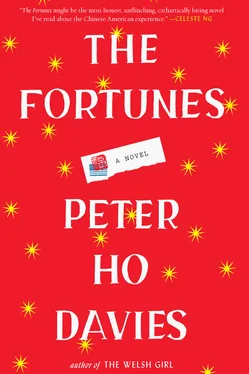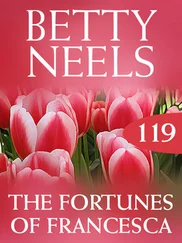— Mao Zedong
It’s a little before one a.m. by John’s watch. Gotcha Day! as it’s listed on the agency itinerary, the day they’ll get their baby. Mei Mei, he reminds himself. This is likely to be his last uninterrupted night’s sleep for a while, but one a.m. in Guangzhou is one p.m. in Michigan and he’s wide awake. Ancient Chinese cities, he’s learned on their trip, had a bell tower and a drum tower to announce the hours — the bell for the morning hours, the drum for evening. Or was it the other way around? All he knows is he’s hearing bells instead of drums, drums instead of bells.
In fact, his pulse in the scratchy hotel pillow sounds like nothing so much as footsteps in snow.
Beside him, Nola has earplugs, an eyeshade, her bite splint in. Her breath stinks of melatonin. He wants to wake her, out of loneliness or spite, he’s not sure which, but when he presses against her she shrugs him off with an irritated mewl. He touches himself halfheartedly instead.
In the corner the minibar gives a little glassy shiver.
Gotcha Day. There’s been some murmured debate among their group of parents-to-be about the phrase. Stan and Bev, who already have an adopted daughter, use it unselfconsciously. Lily, their eldest, back home in Knoxville with “Paw-paw” and “Ma-mee” (John recoils from the infantilization of such terms, swears he won’t be the kind of parent who slips into baby talk), just adores Gotcha Day. It’s like a birthday and Christmas all rolled into one, and only adopted kids get to celebrate it. “Their birthdays are just guesstimates anyway,” Bev explained on their river cruise earlier that evening. “Last year Lily tied a big red ribbon in her hair and had me undo it. ‘Like you’re opening a present!’ Of course, then she wanted to open her own presents.”
Others are less easy with the term. Alice says it makes her think of her daughter as a thing, a possession, something bought and sold, which is what many of them feel, though they wish Alice wouldn’t be so blunt about it. “She’s so militant about everything,” Nola says when they’re alone. “But she never calls her daughter by her Chinese name, do you notice, always Gertie.” Short for Gertrude, Alice likes to note meaningfully, waiting heavily, like the adjunct professor of English she is, for people to get the reference. (There’s a Lost Generation gag to be made here, but John has resisted.) Alice has a photo of Gertie printed on a T-shirt which she wears every day (perhaps she has several, the group hopes). It’s not much worse than the rest of them, with their laminated photos on lanyards or in wallets, though she does have a disconcerting habit of yanking her windbreaker open to reveal the picture whenever she mentions Gertie. “It’s a bird, it’s a plane…” John whispers when they see her across the hotel lobby.
John and Nola, like most of the others in their party, are careful to refer to Mei Mei by her Chinese name, though they all have Western names picked out, ready to bestow. Anna, in their case, though they’ll keep Mei as her middle name.
And yet why don’t they use them, these new names? he ponders. Out of respect? To curry flavor, in his mother’s malapropism? (Some old line— How do Chinese parents name their children? They toss crockery out the window: ching! chong! chang! — flits through his wired mind.) Or more likely some cringing deference toward the Chinese authorities? Some tiptoeing sense that they don’t own their children yet? Or perhaps out of some reserve, some hesitation to fully possess them?
Probably they’re just embarrassed by their choices, he tells Nola.
Such as?
Connie! Or Amy. No, no Vera and Maya. Maxine!
Maybe, Nola suggests mildly, it’s just the same superstition that makes biological parents not share a name with others before the birth.
It puts John in mind of the Chinese tradition of calling children by derogatory nicknames — Little Pig, Ugly Dog — endearments intended to disguise how precious a child is from the demons that might steal it away.
Though aren’t we those very demons?
And this is why he doesn’t like “Gotcha Day” as a name. This whole experience feels like an elaborate trick, some setup, just waiting for that gotcha moment when the rug of their hopes will be pulled out from under, the floodlights illuminating the city turned glaringly on them.
But then, he reminds himself, they wouldn’t be here — he, Nola, most of their party — if fate hadn’t already had a laugh at their expense.
They had found themselves in their midthirties, secure and, if not quite content, then cheerfully resigned to their lot. Nola was a preschool teacher by then, John a writer. He’d published a few stories in decent journals, sold a collection entitled Ancient Chinese Secrets not long after graduate school, and secured a college teaching job on the basis of it. But then the historical novel he’d promised his publisher about the building of the transcontinental railroad got bogged down. It’s taking longer to finish than the railroad took to build, he used to joke, though to be fair, there were more Chinese working on the railroad. But the joke stopped being funny when the publisher canceled his contract. The trouble — more intractable than the twelve-foot snowdrifts or the granite outcroppings the railroad encountered — was a reading he’d given at his new college, a year or so after his first book had come out. He had thought it went well, been flattered by a good turnout (though he gathered afterward it was the last reading of the semester and all the undergrads were belatedly satisfying a requirement). A Chinese student, crisp white shirt buttoned to the throat and wrists, had raised his hand during the Q&A. “In your lecture,” he began, and John had smiled into the microphone and corrected him—“Story”—and the student had nodded and proceeded to list instances of Chinese words John had misused or mispronounced in his story. A long list. There’d been a murmur of amusement, then silence spreading through the crowd like a stain. “Also, please, this one word, gu gu jai —it does mean penis,” the student said with as much distaste as he might handle one, “but I think is baby penis, what you call baby talk, what a mother say, not so… romantic between two lovers.”
John had flushed darkly, managed to thank the student civilly. The host’s “If there are no more questions…” had been drowned out by simpering giggles.
It had been nothing, really. (He’d blamed his mother, who’d taught him the term and neglected to correct it when he showed her the manuscript, but that turned out to be even more mortifying: I thought you knew! I certainly never called it that after you were a baby. I thought you meant it. Meant it! You know I don’t understand your stories. I thought it was supposed to be something… kinky. ) Nothing, and everything. He knew he’d been a diversity hire, suspected that the hiring committee had looked past better-qualified candidates. Now he sat in classrooms, in faculty meetings, feeling like a fraud, or worse — a minstrel show. He’d played around after that with a project about Anna May Wong, the early Chinese American movie star trying to make it in the era of yellowface. She’d had her own Chinese critics, but after a couple of years the work hadn’t advanced much beyond copious notes (even their choice of Anna as a name for Mei was only coincidental; they’d had Nola’s grandmother in mind) when he’d been offered an unlikely lifeline. He’d been making money, if not a reputation, for several years now writing faux dime-store novelizations of the old TV series Kung Fu. The sheer bogusness of the show, the very reason the publishers had sought out an Asian American writer, afforded him an ironic distance from his anxieties of authenticity and enabled him to write again, albeit under the pseudonym Jack Ling — his mother’s maiden name, his own middle one, John Smith in her view being too common. (He couldn’t very well tell colleagues about these new books anyway. As far as they were concerned he was working on a novel about the Vincent Chin case, and he suspected he’d only secured tenure because the college had had to settle a discrimination suit the year before.) And yet at the same time he felt enough real affinity for the half-white, half-Chinese central character to find some secret satisfaction in the books, even if Nola considered it hack work. (When they’d met in graduate school, she’d wanted to be a poet, but she had given up — in the face of his early success, he sometimes feared.) He’d written half a dozen of them over the past four years and had recently pitched the publisher the idea of starting a new series of Charlie Chan novels.
Читать дальше












